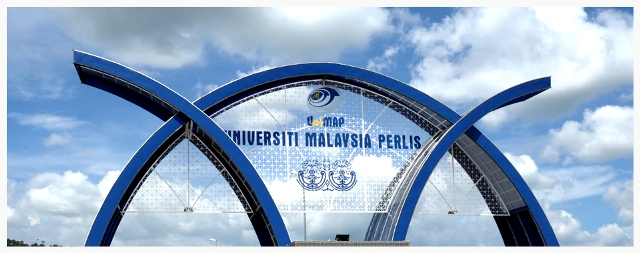UniMAP To Offer Bahasa Melayu Studies Syllabus Overseas
Kangar, 30 May – Universiti Malaysia Perlis (UniMAP) intends to offer Bahasa Melayu Studies syllabus or curriculum overseas.
According to UniMAP Vice Chancellor Dato’ Prof. Dr. Zul Azhar Zahid Jamal, UniMAP is in the process of increasing collaborations with prominent universities worldwide to establish greater Bahasa Melayu Studies curricula.
“Acculturating such things means we must keep doing it or make it a natural part of our lives though its methods and principles. In fact, acculturating may also mean practising it until it becomes a way of life.
“Therefore, acculturating Bahasa Melayu would mean employing the Malay language correctly in linguistic communications to fulfil daily needs and to subsequently bolstering an age of progress for the civilisation of the Malay society,” he said in the welcome speech during the UniMAP-Walailak University Bahasa Melayu In-Country Graduation Ceremony which took place at Dewan Kecemerlangan, UniMAP Main Campus Lecture Hall Complex, Pauh Putra, recently.
He added that by having Bahasa Melayu taught overseas and adopted across the Malay Archipelago would indirectly contribute to the accomplishments of early language luminaries.
At the ceremony, 22 Walailak University students celebrated the graduation of their semester-long Bahasa Melayu In-Country Programme which is organised by UniMAP and conducted by the UniMAP Centre for International Languages from 14 December 2015 to 17 June 2016.
Prof. Dr. Zul Azhar revealed that he was proud because every student succeeded in completing their six-month course with excellence.
“In fact I am also proud because this programme succeeded in expanding the use of Bahasa Melayu to a greater level in the context of UniMAP as a repository of knowledge,” he said.
He further added that among the feedback UniMAP had received described this programme as being beneficial in increasing Bahasa Melayu communication skills as well as in-depth learning of Malaysian culture.
“I hope that the efforts to uphold Bahasa Melayu does not stop at Walailak University but will also be expanded to other educational institutions in the future,” he expressed.
He also wished to send UniMAP students, who are learning Thai as a third language, to Walailak University for a visit and to attend programmes there.
“Such a programme had been initiated earlier but had been carried out in a more leisurely style at a Thai village and was not academically structured.
“Therefore it is hoped that a programme with Walailak University students will enhance language use among UniMAP Thai language students and to allow the learning of Thai culture,” he declared.

